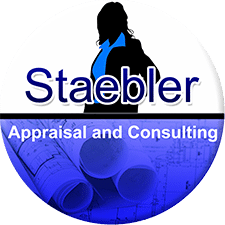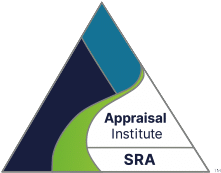A common mistake among real estate owners is mistaking market value for insurable value. The following definitions should help to clarify the difference between these two values:
Market Value:
To determine the correct market value of a property an appraiser will use up to three approaches to arrive at an opinion of value. The three approaches are the Sales Comparison Approach, the Cost Depreciation Approach, and the Income Capitalization Approach. The latter will only be used for properties which produce income, for example an office building. For most residential properties the Sales Comparison Approach is applicable and if the property is a newer construction the Cost Depreciation Approach can also be used. But the most important approach is the Sales Comparison Approach in which the subject property will be compared to recently sold comparable properties.
The market value will be used for refinancing and to establish the correct sales price if you want to purchase or sell real estate. The market value includes the land on which the subject property is built.
Insurable Value:
The scope of work for the insurable value can be put in one simple sentence:
“What will it cost to rebuild the subject property as-is at current construction prices and with like-kind materials?”
The insurable value can only be determined with a Cost Approach; the two other aforementioned approaches are not applicable for this kind of value. And the “cost approach” used in the replacement valuation is totally different when compared to the cost approach in market value appraisals. Usually the reconstruction cost will be calculated with the support of a construction cost software like Marshall and Swift/Boeckh or R.S. Means, which are both national construction cost providers. Additionally, a good appraiser will try to find actual cost comparables or will interview builders in regard to the current construction cost.
The insurable value will not include the underlying land and no depreciation will be deducted. Furthermore, an appraiser should not include code upgrades, debris removal or demolition. These costs should be included as insurance riders by the insurance agent.
The insurable value can only be used to determine proper insurance coverage; no other uses are permitted.
After learning the difference between the two values, the previously posted question can be answered fairly easy:
The market value of real estate follows the up and down movement of our current economy. Sadly there has recently been more “down” than “up.” Real Estate loses value if there is an oversupply on the market and currently the inventory of unsold homes is overwhelming.
However, the cost to build does not necessarily decrease proportionally to the decrease in market value; on the contrary, currently it is more expensive to build a new home than to buy a “second hand” home.
In general, labor prices have declined rapidly, especially in states without worker unions, like Florida. But material prices have remained steady in 2010, after a short dip in the years 2008-2009. Now the oversupply in construction material is absorbed and the prices are once again on the rise. Furthermore, it is vital to understand that the construction material market is not a “local” market, but more a “global” market where many different economical factors influence the material prices.
Besides the material prices, the location of the property plays an important role as well. If your home or condominium building is located in a high risk wind zone or even seaward of the Coastal Construction Control Line (CCCL), construction prices will be significantly higher due to the increased building code requirements in coastal areas.
The last factor contributing to the raising insurance costs are the insurance carriers who just recently had $718 million in rate increases approved by the Florida legislator.
It is not easy for an appraiser to break the news to a condominium association that the costs will go up along with the expected rate increases from the insurance carriers. Even though this seems unfair and aggravating, it is still indispensible to be properly insured in order to avoid penalties in case of a loss.









Great site. A lot of useful information here. I’m sending it to some friends!